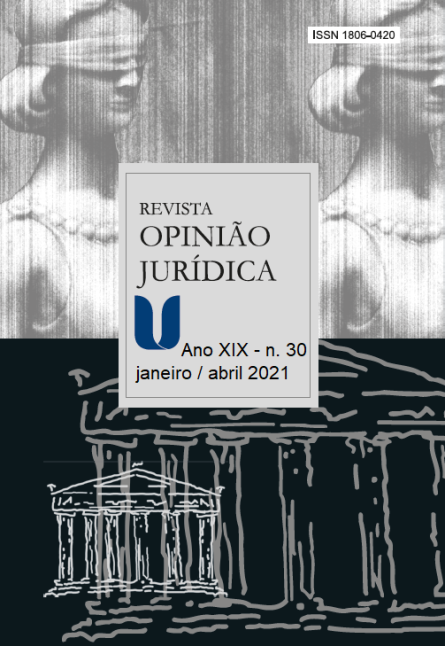ANTI-CONFLICTUALIST AND LIBERAL MINIMALISM OF RIGHTS: AN ANALYSIS FROM THE PERSPECTIVE OF INTEREST THEORY AND THE DYNAMIC APPROACH
DOI :
https://doi.org/10.12662/2447-6641oj.v19i30.p149-174.2021Mots-clés :
Anti-conflictualist minimalism, Liberal minimalism, Interest theory, Dynamic approachRésumé
The article describes two different miimalist approaches in the field of recognition and protection of rights: the anti-conflictual and the liberal variants. It explores their historical-cultural assumptions and highlights their main elements of their unreasonableness.
Methodology: To this end, we use some theoretical tools deriving from the combination of contemporary interest theory with a dynamic approach.
Aim: One of the most relevant purposes of the research is to demonstrate the theoretical non-sustainability of those reconstructions which attributes to the historical succession of the different categories of rights a clear structural distinction between negative rights, understood as “self-executing”, and positive rights to public provisions.
Achievement: The combination of these frameworks (dynamic theory and interest theory) provides a valid conceptual basis for the recognition of social rights in a parity plan regarding traditional rights of freedom; on the other hand, this position leads directly to the rejection of minimalism: classical civil liberties, just as the material conditions necessary for a dignified living, make up protected goods or interests of the subjects who demand positive benefits to be guaranteed.
Contributions: The work provides a philosophical research on the theoretical foundations of social rights in relation to the classical liberal rights of the first generation acquires a special relevance within the project. The present study looks forward to contributing to the unsustainability of those reconstructions that attribute to the historical succession of the different categories of rights a clear structural distinction between negative rights, understood as “self-executing”, and positive rights to public benefits of the State.
Téléchargements
Publiée
Comment citer
Numéro
Rubrique
Licence
La soumission d'articles à l'analyse de l'équipe éditoriale de Revista Opinião Jurídica implique, par cet acte même, la cession, de la part de(s) auteur(s), à Centro Universitário Christus - UNICHRISTUS, de l'oeuvre afin de reproduction, divulgation, distribution, impression, publication et de la rendre disponible, selon les normes de publication (Norma de Publicação 414 R. Opin. Jur., Fortaleza, ano 12, n. 16, p. 1 - 414, jan./dez. 2014) à la charge de UNICHRISTUS, sous toute forme ou moyen existant ou futur, selon l'article 49 et suivants de la Loi 9.610/98.
Paragraphe premier. La cession objet de ce terme est faite à titre non exclusif et gratuit, incluant la totalité de l'oeuvre.
Paragraphe 2: UNICHRISTUS peut rendre disponible, pour des finalité didactiques, l'oeuvre complet ou en parties, des changes à son contenu étant interdites, à l'exception de corrections ou formatages nécéssaires.
Paragraphe 3: La cession est valable dans tous les pays, en langue portugaise ou version traduite, selon l'intérêt de UNICHRISTUS.
LES RESPONSABILITÉS
Au moment au l'article est soumis à la revue, le(les) auteur(s) prend(prennent) la responsabilité exclusive concernant l'intégralité du contenu de l'oeuvre. Toute mesure judiciaire ou extra-judiciaire sera, donc, la responsabilité de l'auteur.
Paragraphe unique. Au cas où plusieurs personnes sont les auteurs de l'oeuvre, leur responsabilité sera solidaire, sauf preuve contraire.






























